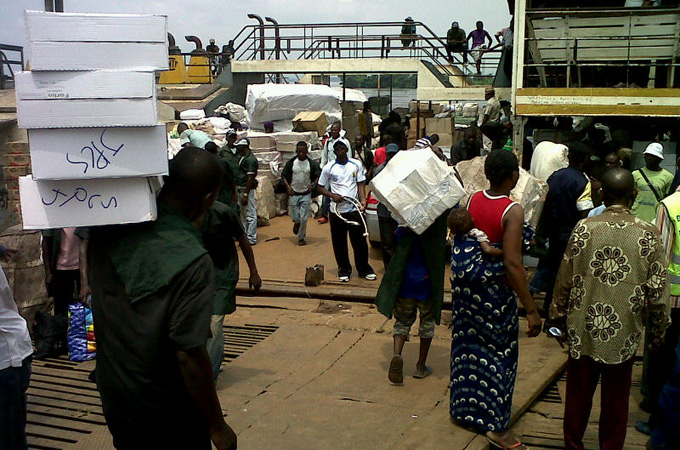Kinshasa tense as DRC awaits vote results
Partial results put incumbent Kabila ahead in presidential elections but fears of violence prompt some to leave capital.

| Provisional results may be released December 6, with final results scheduled for December 17 |
Joseph Kabila, the Democratic Republic of Congo’s incumbent president, leads nearest rival Etienne Tshisekedi with votes from about half of election stations counted after last week’s elections, the nation’s electoral commission has said.
Kabila had 4.9 million votes to Tshisekedi’s 3.4 million, as 53 per cent of the sites reported results, Daniel Ngoy Mulunda, leader of the Electoral Commission, said on Sunday.
But concerns over voting irregularities and fears of further violence have prompted some people to leave Kinshasa, the capital, ahead of the expected release of official results on Tuesday, according to an immigration official.
The official said that more than 3,000 people had left the city over the weekend for Brazzaville, the capital of neighbouring Congo.
‘Precautionary measure’
Al Jazeera’s Azad Essa, reporting from Kinshasa, witnessed hundreds of people gathering in the city’s port to make the journey across the river to Brazzaville on Monday.
|
|
“Locals are saying that the number of people crossing the river is not extraordinary, but the difference is the amount of luggage that is being taken,” he said.
“Most people are going to use the excuse that it is trade that they are carrying, locals have said.
“They can’t say ‘it’s a holiday’ because there aren’t any at the moment.
“Security in the port is tight. Most who are crossing the river are going as a precautionary measure, in case violence breaks out.”
Some locals fear that the border will be closed sometime tomorrow and hotels are booked out in Brazzaville.
“Kinshasa is not the place to be right now,” Rika, a 24-year-old Congolese national, said, adding that she will go to Brazzaville for four days.
Violence has marred the elections in the conflict-stricken country, with at least 18 civilians killed and 100 wounded from November 26 to 28, according to Human Rights Watch, the New York-based group.
Most of the dead were shot by the Republican Guard, Kabila’s security force, the group said.
Call for calm
The African Union, EU, UN and international election monitors have called for calm when results are announced.
The DRC’s influential bishops meanwhile warned on Sunday that the political situation reminded them of “a high-speed train going straight toward a wall”.
Tshisekedi said on Saturday he rejected the early vote count, and warned Kabila and Daniel Ngoy Mulunda, the election commission chief, to “respect the will of the Congolese people”.
“If they don’t, they risk committing suicidal acts. I call all our people to stay vigilant so that if needed they can execute the orders I will give them,” he said.
The third-place candidate, former national assembly speaker Vital Kamerhe, threw his support behind Tshisekedi and said he also rejected the early figures.
Several cities and regions have taken action already in an effort to pre-empt further unrest.
Authorities in Mbuji-Mayi, the capital of the Tshisekedi stronghold of Kasai Oriental, have imposed a night time curfew, while Kabila’s presidential guard has been deployed in the restive southeastern city of Lubumbashi.
In Kinshasa, the government ordered cell phone providers to block text message services on their networks until further notice, after a flurry of election-related rumours swirled via SMS.
Still counting
International officials close to the process have begun whispering that the election commission may not be able to meet Tuesday’s deadline.
While in South Africa, police fired rubber bullets on monday to disperse DR Congo opposition supporters in Johannesburg and arrested those who tried to storm their embassy in Pretoria, the Sapa news agency and an AFP correspondent said.
A group had gathered in front of the ruling ANC party headquarters to protest South Africa’s alleged involvement in fraud in the Congolese elections, protesters told Sapa.
“South Africa does not have a preference of leadership in other countries. We leave it to the people of DRC to decide who it is they want to lead their country,” Clayson Monyela, Department of International Relations and Cooperation spokesperson, told Al Jazeera.
“It is incorrect to say SA prefers one candidate over another. South Africa does not interfere in the internal affairs of a sovereign country.”
